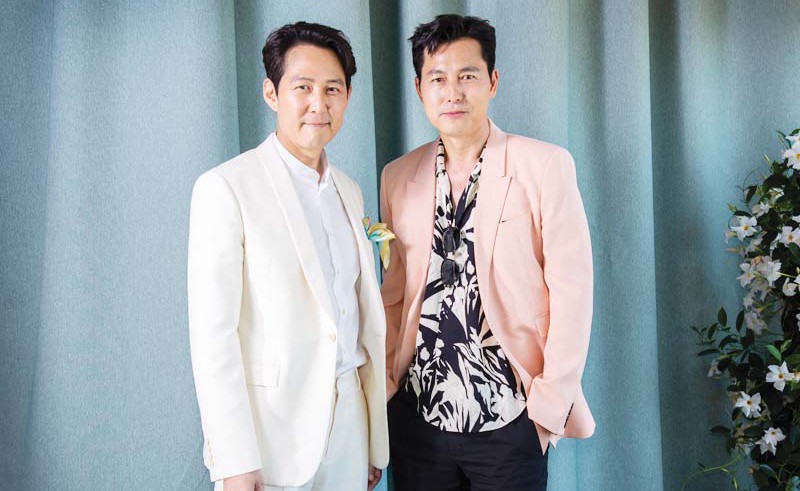21/05/2022
21/05/2022
CANNES, France, May 21, (AP): Lee Jung-jae, the award-winning star of Netfl ix’s “Squid Game,” spent years developing the 1980s-set Korean spy thriller “Hunt” before electing to direct himself. He did it a little reluctantly, without big plans to continue filmmaking. But Lee did have a vision for what it could be - and where it could premiere. “Before deciding to direct, I thought I just wanted to make a very fun film,” Lee says.

“After I got my hands on it and started writing the script myself, I actually wanted to come to Cannes. Because I wanted to come to Cannes, I had to find the subject matter that would resonate with the global audience.” Few actors know more about capturing the attention of the global audience than Lee. Already one of Korea’s top movie stars, the 49-yearold Lee is at the nexus of the “Squid Game” phenomenon, starring in the dystopic series that - subtitles and all - became Netfl ix’s mostwatched show in some 90 countries. Now, Lee is in Cannes to premiere “Hunt,” which is playing in Cannes’ midnight section and being shopped for international distribution.
The film will test how far Lee can further extend his already borderless career. Earlier this year, Lee signed with the Hollywood powerhouse agency CAA. And he grants that he has some Hollywood ambitions. “Working in Hollywood would definitely be a good experience for me,” Lee said in an interview in Cannes shortly before “Hunt” premiered. “If there was a good fit for me, a good character, I’d definitely like to join. But right now, I feel like global audiences are wanting more Korean content and Korea-made TV shows and films. So I would work in Korea as well very diligently. I might seem a little greedy, but if there was a role for me in Hollywood, I’d definitely like to do that, too.”
Ascension
But if Lee’s ascension to being an increasingly world-renown actor typifies the pop-culture power of today’s Korea, his film is set in an earlier, less harmonious chapter in Korean history. “Hunt” takes place several years after South Korean president Park Chung-hee was assassinated in 1979 by the chief of the Korean Central Intelligence Agency, a coup that ushered in the military dictatorship of Chun Doohwan. “Hunt” is loosely inspired by his subsequent 1983 assassination attempt orchestrated by North Korea. “The ’80s in Korea was when we had the rapidest growth ever,” says Lee. “But democracy didn’t grow as much because there was a military dictatorship and the media was under full control of the government. So I did hear a lot from the older generation and my parents about those government controls. I also witnessed myself college protests.”
“Hunt” grippingly follows a pair of agents (one is played by Lee, the other by Jung Woo-sung) who are both assigned to uncover a North Korean mole within the agency. Lee - not merely dipping his toe into a modest directorial debut - proves skilled at mounting large-scale action sequences and marshalling a dense plot while managing to keep the suspense up. “A lot of people told me that I should change the setting to now,” Lee said, speaking through an interpreter. “But in the ’80s, there was a lot of control of information and people were trying to benefit from fake information and misinformation. I think that still exists now in 2022. Still there are groups that try to benefit from these controls of information and propaganda.
“We now live in a global world that’s connected,” he adds. “We don’t have any silos between us. If there’s a problem or issue, we have to all work on it to overcome it.” Lee is often asked how his life has changed since “Squid Game” by Western journalists who might be less familiar with his nearly three decades as a top star in Korea in films like “An Affair,” “New World” and “The Housemaid.” Lee laughs. “It’s natural because a lot of people in the West might not have known me before ‘Squid Game.’”
That’s changing rapidly, though. Lee will return for season two of “Squid Game,” which the series’ creator Hwang Dong-hyuk recently said should be expected in 2023 or 2024. The first season already led to Lee becoming the first Asian actor win the Screen Actors Guild Award for best male performer. Lee was so surprised - aside from considering himself an underdog, he’s a big “Succession” fan - that he never managed to pull out the speech he had written in his pocket. “It still,” Lee says smiling and shaking his head, “seems like a dream to me.”


